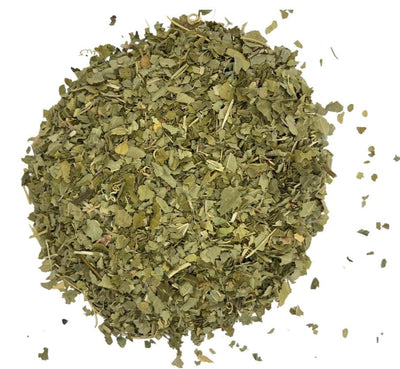First British Tea Plantations
Tea has long been a beloved beverage around the world, but did you know that the British played a significant role in the history of tea production? Back in the late 18th century, the Board of Directors of The East India Company in London began to worry about the high cost of importing tea from China and the escalating tension caused by their illegal opium trade with China. They decided to explore the idea of growing tea in British-owned India.

Tea plantation in Assam
The discovery that the tea plant was indigenous to Assam in Northeast India led the company to set up trial tea gardens there to experiment with the manufacture of both black and green tea. After some experimentation, they found that the black tea they made was better than the green, and in May 1838, the first batch of black Assam tea was shipped from Calcutta, India to London. It reached London six months later and was sold at the London tea auctions in January 1839.
This was a turning point for both The East India Company and for tea production. With the success of the Assam tea, production soon expanded into other regions. Darjeeling, the Nigiri Hills in Southern India, and Ceylon (now known as Sri Lanka) were some of the other areas where British tea plantations became established. By the turn of the 20th century, British tea production had even expanded to East Africa.
The First British Tea Plantations in Ceylon (currently known as Sri Lanka)
In the early 1860's, the British began to establish tea plantations in Ceylon. Prior to this, coffee had been the main crop in the region, but a fungal disease destroyed the coffee plants. The government looked for alternatives and tea was seen as a viable alternative. The government then began to offer incentives for its cultivation.
In 1867, the first tea plantation was established in Ceylon by James Taylor, a Scottish planter. Taylor had previously worked on tea plantations in India and brought his knowledge and expertise to Ceylon. The tea industry in Ceylon grew rapidly, and by the 1890's, it had become the world's largest exporter of tea. The establishment of tea plantations in India and Ceylon played a significant role in the development of the British tea industry.

Tea plantation in Sri Lanka with onsite factory
Today, Assam tea is still widely produced and enjoyed by tea drinkers around the world. It is a robust, malty tea which is often used in breakfast blends. At Tea by Birdy, one of our best sellers is Assam Vanilla which is a blend of black tea from Assam and vanilla flavouring from Madagascar. It has a rich, smooth flavour and a sweet aroma. If you're interested in trying this tea, you can check out Tea by Birdy's Assam Vanilla Black Tea.
In addition to its significance in the history of tea production, the establishment of British tea plantations in India had significant social and economic impacts in the region. The tea plantations provided employment opportunities for local people and helped to develop infrastructure in the region. However, there were also negative consequences, such as exploitation of workers and environmental degradation.
The history of British tea plantations in India is a complex and fascinating one. The British played a major role in shaping the global tea industry due to its experimentation with tea production in Assam and surrounding areas.

Camellia sinensis plant
If you are interested in trying out some of the delicious teas produced in India and Sri Lanka, check out Tea by Birdy's collection of Indian and Sri Lankan teas. From the rich, malty flavours of Assam to the bright, citrusy notes of Ceylon, there is something for every tea lover to enjoy. Take a sip of history and try our Breakfast Blend which is a blend of premium teas from both Assam and Ceylon regions.







